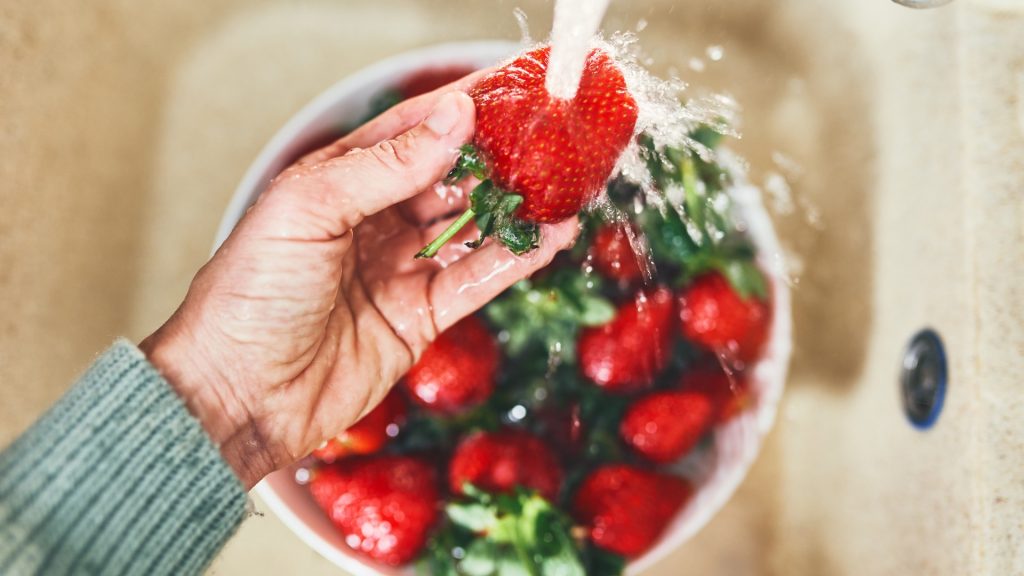Common produce items found to carry heavy pesticide loads: Study

A new peer-reviewed study has found that some of the healthiest foods on grocery store shelves may also carry the heaviest pesticide loads. Published in the International Journal of Hygiene and Environmental Health, the research ranked 44 different fruits and vegetables by pesticide residue and linked them to human exposure measured in urine samples.
Researchers found that foods such as spinach, strawberries, apples, potatoes and kale were among the top offenders. Others included peaches, nectarines, cherries, raisins and grapes.
Health risks tied to pesticide mixtures
The study highlights that increased exposure to pesticides over time may contribute to health problems including certain cancers, fertility issues, and metabolic disease. Unlike federal regulations that assess one chemical at a time, the study looked at the cumulative effect of multiple pesticides in a typical diet.
“Some fruits and vegetables can increase your pesticide levels more than others,” said Alexis Temkin, vice president for science at the Environmental Working Group and lead author of the study. “These differences translate into what’s actually measured in the body.”
Temkin emphasized that the study is not a call to avoid produce. “We know that a diet high in fruits and vegetables is beneficial to health. But diet is also a modifiable source of exposure,” she told SAN.
Washing, organic options, and access
Experts stress that consumers can take simple steps to reduce their exposure. Washing produce before eating is essential, Temkin said. He noted that USDA testing already accounts for washing, meaning unwashed produce can have even higher residue levels.
“Organic can reduce pesticide exposure,” she told SAN. “We’ve seen that in studies over and over again, but we know that’s not accessible or realistic for everyone all the time.”
Temkin suggested that people prioritize organic options, if possible, for higher-residue foods while other produce may be safer for items that typically test lower.
“If it all feels overwhelming, just eat a high variety of fruits and vegetables,” Temkin said.
Experts warn about hidden risks
While washing produce can help minimize exposure, Nathan Donley, environmental health science director at the Center for Biological Diversity, said it cannot fully solve the problem.
“A lot of pesticides actually get into the vascular system of the plant and get translocated all throughout the plant,” Donley said. “They’re in the leaves, they’re in the stems, and they’re in the tissue of the fruit or vegetable you’re going to be eating. In a lot of ways, those pesticides are just as much a part of that food as the vitamins and nutrients it contains.”
Donley noted that growing your own produce, when possible, gives consumers more control. But he cautioned that the risks are cumulative, not immediate. “It’s not like you eat a pesticide and all of a sudden you get sick. These are things that happen by eating small amounts over years or decades,” he said.
Calls for stronger regulation
According to the EPA, all pesticides must be registered or exempted by the Office of Pesticide Programs before being sold or distributed in the US. But that may not be enough. Both Donley and Temkin stressed that long-term solutions will require changes at the policy level.
“We need a better regulatory system,” Donley said. “Our regulatory system really isn’t going to get any better until we get decision makers in place that want to make a change.”
Temkin agreed, adding that the U.S. needs pesticide regulations that account for multiple exposures and vulnerable populations such as pregnant women and children.
Despite the risks, both scientists reiterated the benefits of produce. “Eating fruits and vegetables is far healthier than skipping them,” Temkin said. “The key is minimizing exposure where you can.”
The post Common produce items found to carry heavy pesticide loads: Study appeared first on Straight Arrow News.





